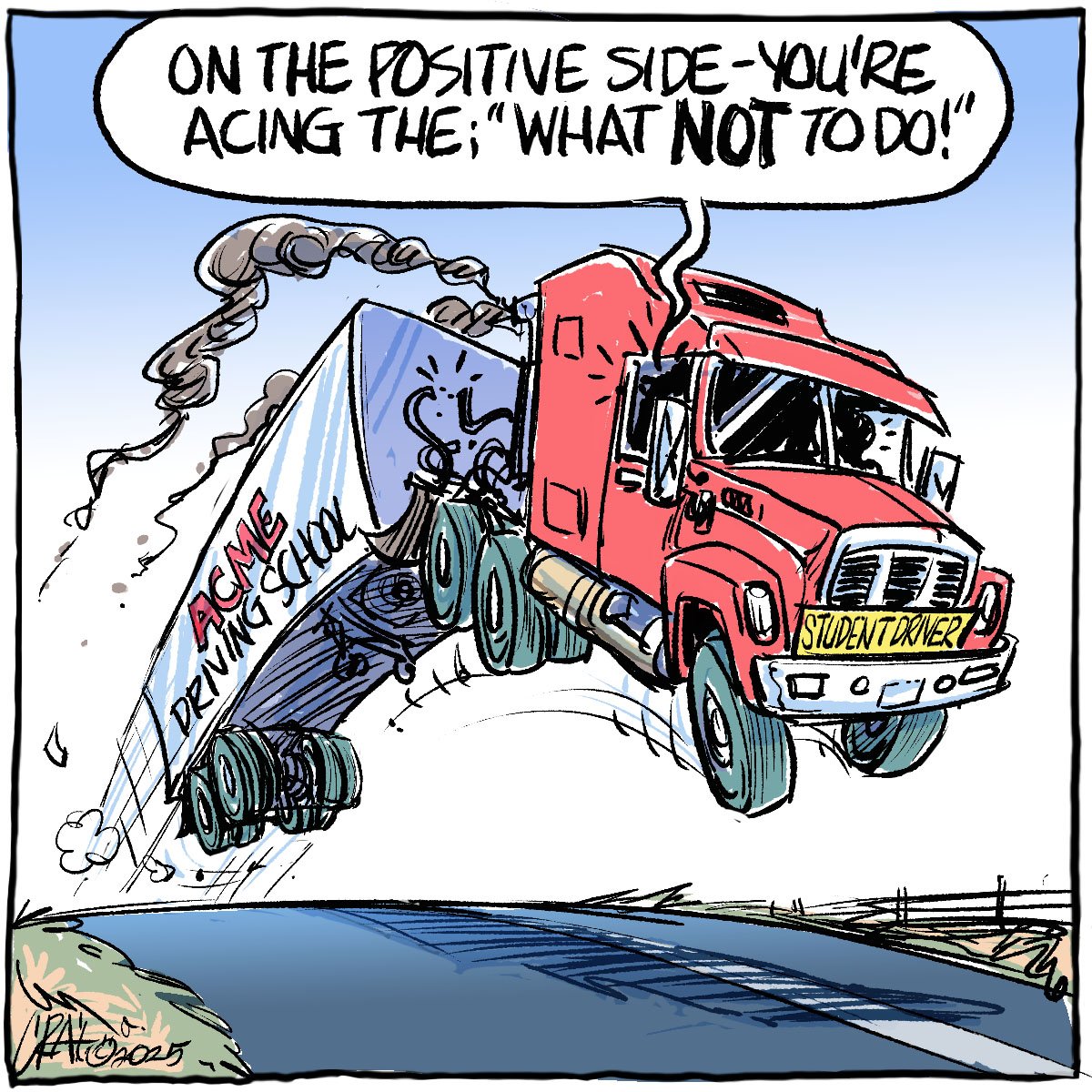THE Conservative party, born over a decade ago in the West as the Reform party with a strong resentment against Quebec’s influence over national policy, has morphed into a party with a strong Ontario wing and a yearning for some of those Quebec votes once so heartily distrusted.
Leading up to the next federal election, expect to see more Conservativé party policies with a newfound accent on the ‘e’.
It is evident in the support being shown by a free trade party once hostile to the very idea of protectionism for the supply management sector so key to Quebec’s agricultural sector.
Read Also

Efforts to improve trucking safety must be applauded
The tragedy of the Humboldt Broncos bus crash prompted calls for renewed efforts to improve safety in the trucking industry, including national mandatory standards.
It is evident in the attention paid by Conservative MPs to the somewhat arcane issue of what happens to 11,000 acres of farmland expropriated by the Liberal government in the late 1960s and early 1970s for a Mirabel airport expansion that never happened.
The Quebec farm lobby Union des Producteurs Agricoles wants that land sold back to farmers and the Conservatives agree, devoting an entire parliamentary day to the issue and embarrassing the minority Liberal government by winning a vote on it last week.
The Conservatives also have been pressing the Liberals hard on the need to do more for the dairy sector and its particular BSE problem after the collapse of cull cow prices and markets. Don’t expect much, if any, negative Conservative reaction next week when the Canadian Dairy Commission announces a 10 percent or more increase in dairy support prices, in part to offset BSE losses.
The old Reform party would have bristled at anti-competitive pricing. The new Conservative party will complain that government support has been so tepid only a large price increase will do the trick.
It also wants to be sure Canada’s supply management farmers do not lose their status as among Canada’s most profitable farm sectors no matter what happens in World Trade Organization talks.
And Conservative MPs constantly rise in the House of Commons to demand more support for farmers.
It all leaves true believers in the old version of Reform/Alliance/Conservative scratching their heads about what happened to the old party that opposed subsidies and was skeptical of supply management.
The answer is simple and complex.
The simple answer is that any opposition party with dreams of winning government must have some Quebec support. Quebec has almost a quarter of the seats in the House and any party that isn’t competitive in those 75 seats will have a difficult time winning a Commons majority.
The more complex reason is that the merger last year of the Progressive Conservative party and the Alliance produced a political alliance with an emerging culture.
The dominant Alliance party brings its western populism and Republican brand of conservatism and suspicion of the centre. The PC wing brings its historic Quebec roots and the understanding that it is impossible to run a complex country like Canada with a regional agenda.
After five elections with a core western vision that failed to sell in other regions, the new party is groping for a national vision that includes Quebec.
No more ads from this gang with an X through the faces of Québecois aspiring to be prime minister. Instead, next March, the new party holds its first policy conference in Montreal.














